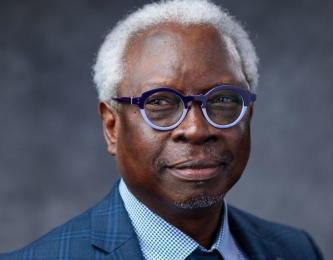

Edward Carson Waller Distinguished Service Professor, Department of Linguistics
A native of the Democratic Republic of Congo, Salikoko S. Mufwene practices evolutionary linguistics, focusing on the emergence of language and on changes that languages undergo as consequences of both migration and the rise of new population structures. These changes include speciation and language endangerment and loss. Using an ecological approach, he explains and correlates language evolution with variation in colonization style and in economic development. With collaborators in Europe, Brazil, South Africa, Singapore, and Hong Kong, Mufwene approaches historical aspects of language evolution comparatively, owing to variation across regions even when the languages in contact are the same. Some of his current foci include understanding the historical expansion of Chinese within China; the emergence of creoles in South, Southeast, and East Asia; and the post-colonial differential evolution of creoles in the Caribbean and Asia. Through this, he aims to deconstruct the myth that globalization and European languages are “killing” “Indigenous languages” uniformly all over the world. Mufwene is the author/editor of several books and over 300 articles, chapters, and book reviews. His seminal The Ecology of Language Evolution (CUP 2001) has been translated into Mandarin. He is also the founding editor of Cambridge Approaches to Language Contact. In his free time, Dr. Mufwene enjoys traveling to places that help him update his knowledge of contact histories around the world, the emergent population structures, and language evolution.
Q: Why is international collaboration important in your field of study?
A: Collaboration makes it easier to access data that other colleagues have. More importantly, more brains are better than one if they can cooperate for the purpose of better understanding the relevant research questions. The exchange of ideas nurtures sharper thinking.
Q: How has your work with international partners been beneficial to you and your career?
A: I have become a better scholar overall and developed hypotheses that are empirically more solidly grounded. I have realized that language evolution is not uniform everywhere because the relevant ecologies of human interactions have been different in so many different ways.